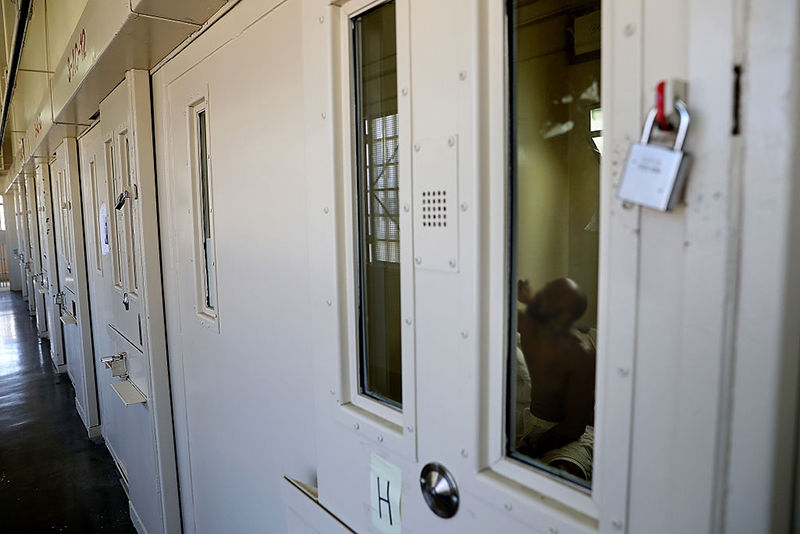On the ballot this Nov. 8 in California is Proposition 62.
This proposition would repeal the death penalty in our state and would make life in prison without parole the maximum punishment that could be imposed for crimes of murder.
My brother bishops and I in the California Catholic Conference are supporting this effort.
It is time for us to end the death penalty — not only in California but throughout the United States and throughout the world.
The Catholic Church has always taught that legitimate governments have the right to impose the death penalty on those guilty of the most serious crimes. This teaching has been consistent for centuries — in the Scriptures, in the writings of the Church Fathers and in the teachings of the popes.
But in recent years, there has been a growing consensus that the use of the death penalty can no longer be accepted. This consensus is reflected in the Catechism of the Catholic Church, in the teachings of bishops’ conferences around the world and in the teachings of Pope John Paul II, Pope Benedict XVI and now Pope Francis.
On his final visit to our country in 1999, St. John Paul called the death penalty “cruel and unnecessary.” And it is true.
The reason is that every life is sacred and every person has a dignity that comes from God. This is true for the innocent and it is true for the guilty. It is true even for those convicted of the most violent crimes.
The Church has always opposed abortion and euthanasia because it involves the direct and voluntary killing of innocent human beings. Obviously, the death penalty is different. Those guilty of violent crime are not innocent.
But in opposing the death penalty we are also witnessing to the sanctity of life. We are saying that even the most sinful and guilty lives are precious to God and should not be taken by others.
The death penalty denies God’s plan of mercy and justice. It violates the condemned person’s dignity and deprives him of the chance to change his heart and make amends for his crimes.
In seeking an end to the death penalty, we never forget the victims of crime and their loved ones. We entrust them to the Father of mercies and we pray that he grant them healing and peace.
But we recognize that killing the criminal does not bring justice to the victims. Our country has far more effective ways to bring murderers to justice and to keep society safe from violent criminals.
Rather than condemn them to death, as Christians, we should pray for their conversion and encourage their rehabilitation and ultimate restoration to society.
For some criminals, this will never be possible. Their hearts are too damaged, too cruel and hardened. But we know that conversion and repentance is God’s work, not ours.
We are encouraged by the witness of saints like St. Therese of Lisieux to continue to pray for and work for the conversion of those on “death row.” We know that life belongs to God alone and we believe that there is no one who cannot be touched by God’s mercy and changed by his love.
The Church is not changing her teaching. Governments will always have the justification to use the death penalty if it is necessary to carry out its task of ensuring social order. What the Church is urging now is that governments exercise their discretion to show mercy instead of executing the condemned. Such a gesture would be powerful testimony to the sanctity of human life and to the possibility that every person can find redemption and rehabilitation.
In this, we are following some of the great doctors of the ancient Church, such as St. Ambrose and St. Augustine. In their times, they also urged government authorities to show mercy in capital cases.
And, of course, we have the witness of Jesus Christ, who pardoned the woman caught in adultery — a crime at the time that carried a mandatory death sentence.
Something else I’ve been thinking about. We have a strange appetite for violence in our popular culture. We allow children to play violent video games and listen to music that demeans human dignity. For “entertainment,” we watch movies and shows in which fictional criminals take other people’s lives and commit unspeakable acts.
In this cultural context, I do not see how the death penalty can ever again express society’s ultimate value for human life. In this cultural context, the death penalty can only function as one more killing.
In a culture of death, I believe mercy alone can be the only credible witness to the sanctity of life and the dignity of the human person.
I urge all of you to continue to pray and reflect on this complicated issue. We have established a website with resources to help in your reflection — killingisntjustice.org.
Pray for me this week and I will be praying for you.
And may our Blessed Mother Mary help all of us to be faithful citizens and witnesses to the culture of life in our time.
You can follow Archbishop Gomez daily via Facebook, Twitter and Instagram.

